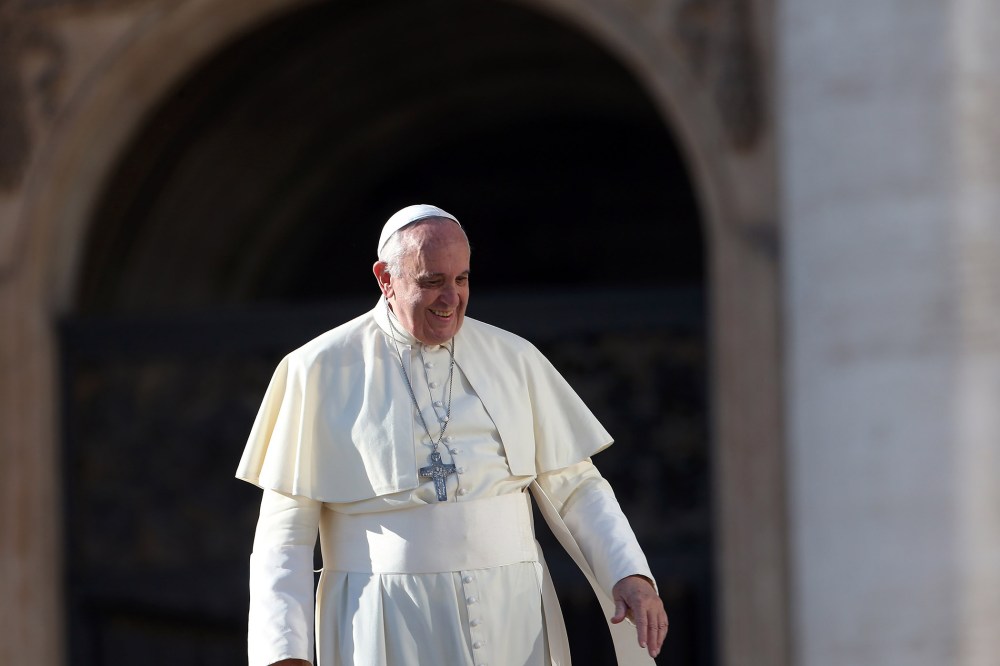Scholars can fight about whether God is “green,” but the question is settled for His deputy here on earth: Pope Francis is a full-bodied environmentalist—basically Bill Mckibben with ritual incense and a white, flowing robe.
In a much-anticipated papal letter released by the Vatican on Thursday, his holiness offered a sweeping defense of “our common home,” warning “every living person on this planet” about wrecking the place with “consumerism,” “individualism,” and “an unprecedented destruction of ecosystems.”
RELATED: Pope Francis rejects communism critique
The 184-page encyclical, one of the highest forms of Catholic writing, stirred furious debate even before its release. That furor is likely to intensify in the days ahead. But as people discuss the text—and politicians respond—the pope’s message will almost surely be injected with rumors and half-truths.
Here, then, is a trusty guide to the five most important arguments in the pope’s historic letter.

2. Technology will not save us. “We must be grateful for the praiseworthy efforts being made by scientists and engineers dedicated to finding solutions to man-made problems,” Francis writes. But “the degree of human intervention,” he continues, “is actually making our earth less rich and beautiful, ever more limited and grey.”
“We seem to think that we can substitute an irreplaceable and irretrievable beauty with some which we have created ourselves,” Francis concludes. “It’s based on the lie that there is an infinite supply of the earth’s goods, and this leads to the planet being squeezed dry beyond every limit.”
3. There is no excuse for denying reality or playing politics. Pope Francis hammers business-people and elected officials for “masking the problems or concealing their symptoms,” often for personal gain. “This is the way human beings contrive to feed their self-destructive vices: trying not to see them, trying not to acknowledge them, delaying the important decisions and pretending nothing will happen.”
RELATED: Jeb Bush calls out Pope Francis on climate change
He calls on such people, and the rich west in general, not only to acknowledge “the spiral of self-destruction that currently engulfs us” but to do something about it. Those who are most to blame for our problems, he implies, have the most responsibility for fixing them. “We must continue to be aware that, regarding climate change, there are differentiated responsibilities,” he writes. The emphasis was in the original.











